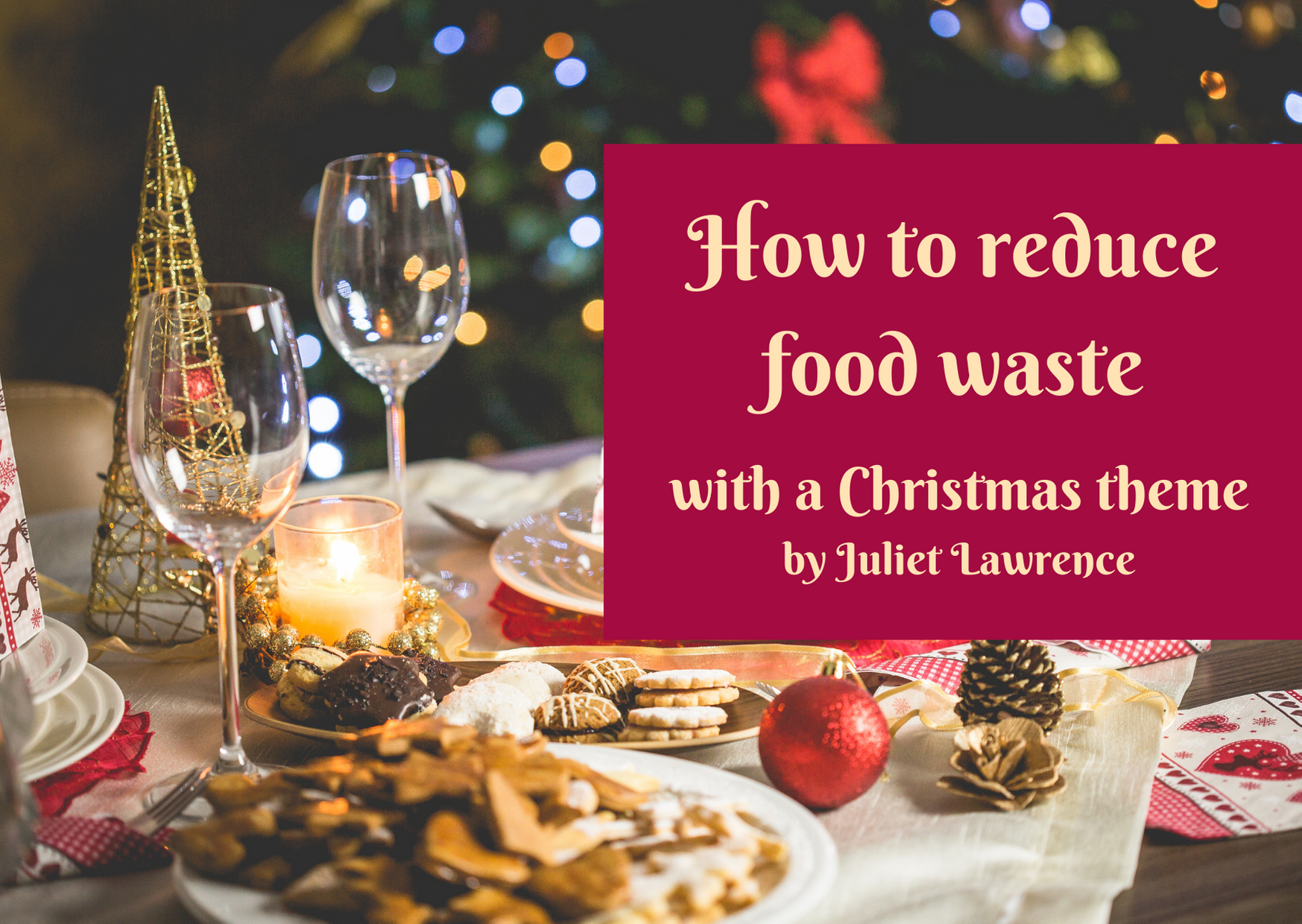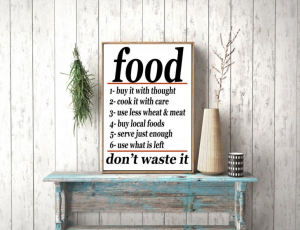
December 3, 2020, by sustainablenottingham
How to reduce food waste, with a Christmas theme
In the second of our sustainable Christmas themed blogs, Juliet Lawrence from the UoN Sustainability Society tells us how and why we should be trying to reduce our food waste throughout December, and beyond.
Everyone is starting to think about Christmas now as the end of term is approaching! So here are some tips on how to reduce food waste at Christmas time.
Food waste is a huge contributor to global warming. When food is thrown away and not composted, it ends up in landfill without oxygen and releases methane, a greenhouse gas which is about 25x more harmful to the atmosphere than CO2. This is exacerbated by the huge quantities of food that get thrown away annually. If wasted food was a country, it would be the third largest producer of CO2 in the world (after the US and China).
The Christmas holidays play a massive part in this due to all the festivities, lovely though they may be. But there are so many steps we can take to just reduce our impact a little bit. The UK throws away a staggering 4 million tonnes of edible food during December, including 2 million turkeys & 170 tonnes of sprouts.
A step-by-step guide for what you can do to help
Planning
Before you start shopping for all your Christmas foods, make space in the fridge and freezer by eating it up or donating to neighbours (use the app Olio) so that you correctly store everything you buy. Then you will also know what is in the house, so you don’t buy anything twice. This will help save money.
Encourage your family to plan the upcoming meals. Write a shopping list and try to only buy the necessities. Keep it simple!
Consider how many people are going to be eating with you – it may be less than usual this year sadly so don’t buy the same quantities of food you usually would.
Tell your guests in advance what you’d like them to bring, so you don’t end up with double the amount of stuffing!
Buy your vegetables loose as often supermarkets will entice you to buy more in a bag than you really need. Save money and reduce your plastic consumption as well!
Cooking & eating
Make as much as possible from scratch to avoid buying in plastic. Have fun making a Christmas pudding and some mince pies!
When preparing the food, keep skins on vegetables like carrots and potatoes. Try to use every part of the vegetables and compost or give to the dog what you really can’t use!
At the table: use fabric napkins that you can wash after. Consider not buying crackers this year.
When serving up: only take what you are going to eat – you can come back for more if you’re still hungry!
Leftovers
When the meal is finished: don’t throw away the leftover food! Instead, pop it in the fridge (try not to cling film to avoid using single-use plastic, instead use Tupperware / silicon lids / beeswax covers / a plate).
Become creative with leftovers! Enjoy the food over the following days and look up some yummy recipes to reuse it! For example, fry up sprouts, carrots, potatoes. And for those who eat turkey, make a risotto.
If you have too many leftovers, or another day of Christmas food doesn’t excite you(!), pop it in the freezer. This will extend its life by months and means a ready-made meal in the future.
And offer your guests food to take home!

1.3 billion tonnes of food are wasted every year, so try to implement as many of these top tips to stop Christmas having such a heavy impact on our already hurting environment. It will thank you in the future.
No comments yet, fill out a comment to be the first

Leave a Reply